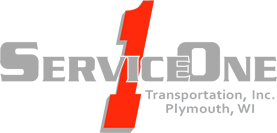Owning and managing your own business can be a highly rewarding endeavor, offering numerous benefits that extend beyond just financial gain. One of the most significant advantages of becoming an owner-operator is the ability to make decisions quickly and effectively, without the red tape that often hinders larger corporations. This autonomy allows for a more agile and responsive business model, better suited to adapting to market changes and customer needs.
Another advantage is the deep sense of personal satisfaction and fulfillment that comes with steering your own ship. In an owner-managed business, the owner’s vision and goals are central to the company’s operations, providing a clear direction and purpose. This often results in a more motivated and cohesive team, as employees tend to be more engaged when they feel connected to the company’s mission.
Additionally, owner-operators often find financial benefits in their ventures. By cutting out the middleman and taking direct control of business operations, they can streamline processes, reduce costs, and maximize profits. This financial efficiency not only boosts the company’s bottom line but also provides the owner with a firsthand opportunity to reap the rewards of their hard work and dedication.
Understanding the Role of an Owner-Operator
An owner-operator is self-employed, owning and operating their trucking business. This role distinctly contrasts with being a company driver due to the significant responsibilities and independence involved.
Defining an Owner-Operator
An owner-operator both owns the trucking business and operates the vehicles within the fleet. Typically, they purchase or lease their own truck and handle all business operations.
They are responsible for managing their schedules, finding and negotiating freight contracts, and maintaining their vehicles. This role demands a high level of responsibility as they oversee all aspects of their career, from logistics to finances.
Owner-operators benefit from a greater degree of independence and have the freedom to choose when and where they work. This autonomy can lead to increased job satisfaction but also requires a strong business acumen.
Owner-Operator Vs. Company Driver
A company driver works for a trucking company, operating a vehicle that the company provides. In contrast, an owner-operator builds and manages their own trucking business.
Company drivers typically have set schedules and routes provided by their employer, offering less freedom but more stability. They do not have to worry about the costs associated with vehicle maintenance or finding loads.
Owner-operators, on the other hand, must navigate the complexities of running a business, including marketing their services and managing expenses. While they enjoy greater freedom and potential earnings, they bear all the risks associated with self-employment, including market fluctuations and operational costs.
For more detailed distinctions, read Owner-Operator Trucking: Ins and Outs of the Industry.
Starting Out as an Owner-Operator
Starting out as an owner-operator involves establishing your business, considering financial obligations, and ensuring compliance with legal regulations.
Essential Steps to Establish Your Business
The first step is developing a comprehensive business plan. It should outline the type of freight to be hauled, target markets, and pricing strategies. Business registration with local and state authorities is essential. Obtaining an operating authority from the FMCSA is necessary, alongside securing a Commercial Driver’s License (CDL).
A reliable truck is paramount. Choose one that suits your specific freight needs and has good fuel efficiency. Regular maintenance should be planned. Building relationships with shippers and freight brokers also helps secure consistent work.
Financial Considerations
Initial costs include purchasing or leasing a truck, securing insurance, and covering permits. Consider financing options if upfront costs are steep. Operating expenses such as fuel, maintenance, truck payments, and tolls need continuous management.
A proper accounting system is vital for tracking income and expenses. Keeping track of taxes is crucial, including quarterly estimated tax payments. It’s advisable to consult with a financial advisor to plan for unexpected expenses and ensure long-term profitability.
Compliance and Legal Requirements
Compliance with FMCSA regulations is mandatory. This includes adhering to hours-of-service rules and maintaining electronic logging devices. Regular audits and inspections ensure adherence to safety standards.
Legal requirements include securing various permits and registering as a business entity. Keeping up-to-date with changing regulations is vital to remain compliant. Insurance is necessary to cover liability, cargo, and physical damage.
Establishing a safety plan and having a process for handling violations helps in maintaining a good standing. Regular training on compliance and safety regulations fortifies this.
Managing Your Owner-Operator Business
Effective management involves handling daily operations efficiently, fostering client relationships for business growth, and maintaining a healthy work-life balance.
Day-to-Day Operations
Efficient administration of daily tasks is vital for success. This includes timely delivery scheduling, route planning, and vehicle maintenance. Utilizing software tools for tracking expenses and invoices can streamline processes. It’s essential to monitor fuel costs, manage logs accurately, and stay compliant with regulations. Setting aside time for routine vehicle checks prevents unexpected breakdowns and ensures safety.
Business Growth and Client Relationships
Building a strong client base is crucial. Regular communication with clients to understand their needs helps provide better service. Offering flexible solutions and maintaining reliability fosters trust. Networking within industry circles can lead to new opportunities. Leveraging social media and online platforms also promotes visibility.
Balancing Work and Personal Life
Maintaining a balance between work obligations and personal life is necessary for long-term well-being. Setting clear boundaries, such as designated off-hours, prevents burnout. Prioritizing time management can help allocate moments for family and personal interests. Staying active and maintaining a healthy lifestyle contributes to overall efficiency and happiness.

